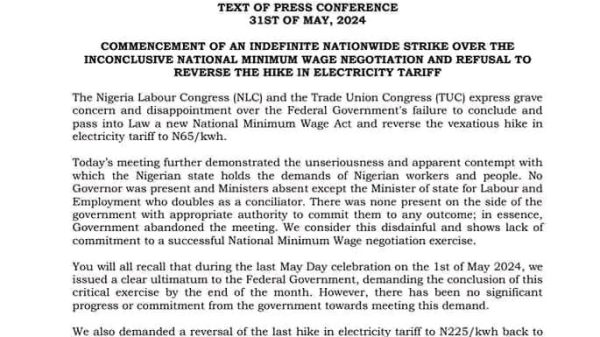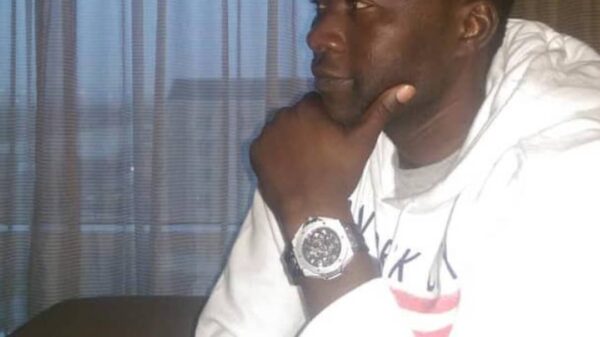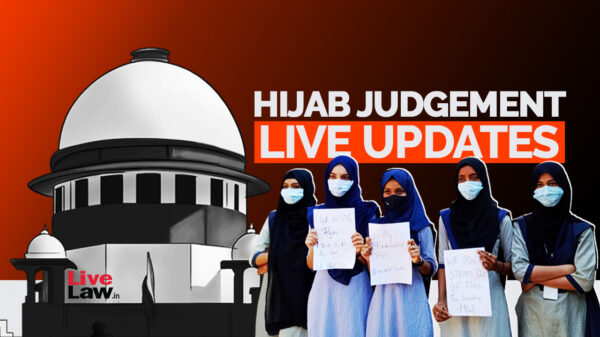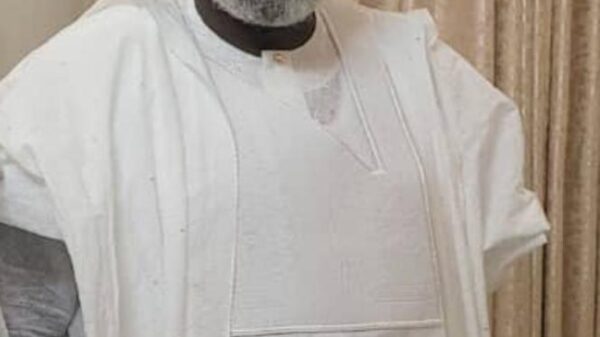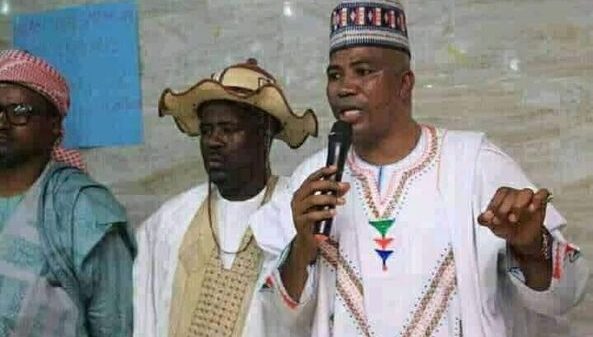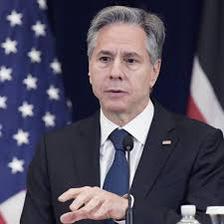*NIGER JUNTA: A DIAGNOSIS AND PROGNOSIS FOR AFRICA*
*By Ussiju Medaner*
*(Published In The Peoples Daily Newspaper, Wednesday’s Column, 9th, August, 2023)*
How did we get to the point when the military began to savour the sweetness of controlling the state; ignoring their functional constitutional role of defending the territorial integrity of the country? At what point did West Africa, our region, become plagued with gross political instability occasioned by events of successful coups d’état, abortive coups and coup plots that have drastically altered the growth and development pattern as well as the economy and the interpretation of public freedom and human right dictum of the region.
It all began, as you may recall, in the period from 1957-1960, when most countries in West Africa broke loose from colonialism and became independent politically. The need for an integrated and classless society was one of the paramount concerns to most if not all, West Africans – as a preferred ideology. Up till date, the impact of colonialism is still being felt at every stratum of the sub-region. As former colonies of European powers began to gain political independence from their colonial masters, the educated African class eventually dominated and controlled the political landscape of their respective countries. The educated elite representing their countries’ leadership with inherent authority over the military rarely used the armed forces for the intended purpose for which they were created. As a result of the military being used by unscrupulous politicians as an instrument of fear against their own citizens coupled with political misrule, the military soon began to seize and control state power through military coup d’états. There were, however, disagreements, dissatisfactions and inordinate ambitions within the ranks and file of the military which led to counter-coups and more often than not civil wars. These factors and many more have led the sub-region socioeconomic and political institutions to the devastation of varying degrees for the past three to four decades from which the region is yet to recover.
Up till 2001, Africa has recorded 80 successful coups d’état, 108 failed coup attempts and 139 cases of reported coup plots. The figures are alarming and reflect the inherent desire of the military institution to continually interfere with governance for whatever reason it gives itself. Even when we recorded a break in cases, it wasn’t Uhuru for the continent yet, as events and democratic mismanagement continue to give the military excuses to interfere and re-interfere.
The impact of coups d’état on African nations since the first coup in West Africa, in 1963, which toppled the Sylvanus Olympio government in Togo is mammoth and has called for answers to many questions. Why the coups? Do they in any way represent basic characteristics of acceptance of the people and collective goodwill of the people? What can be done to totally and finally stop the coups and their reoccurrences?
Coming from all points of argument, an unconstitutional takeover of government power is unacceptable, here in Africa or anywhere in the world; it is by a mutual, relatively unwritten agreement that we have all agreed to democratically decide our leadership and value the tenets of the rule of laws, most especially the freedoms it offers. Government of the people, by the people and for the people is a well-accepted democratic tenet; the sublime right of the people to determine who their leaders are and to remove a non-performing government periodically is the choice of the people. The Lomé Declaration of 2000 and the African Charter on Democracy, Elections and Governance of 2007 both define aspects of unconstitutional change of government. These include a military coup against a democratically elected government; mercenary intervention to replace a democratically elected government; replacing a democratically elected government by dissident armed groups and rebel movements; or refusal of an outgoing government to relinquish power following a defeat in free, fair and regular elections.
It is obvious the new wave of military coups in Africa is pushing the continent backwards in terms of democracy; in the last few years, more than seven coups have occurred in the continent, from Burkina Faso, Mali, Guinea, Chad, Sudan and now, Niger. It is obvious that the embarked democratic advancement of Africa is being derailed by these coups. Why are coups returning to the continent? They were once very common on the continent for many years after independence, but became increasingly rare in the past few decades until now, again. For every meter the continent moves forward in the full transition towards democracy, the coup pushes backwards a quarter, and we need to know why before we can effectively talk about responses and working solutions.
What would the military have to give as an excuse to usurp state power? Isn’t it because the democratically elected leaders with their promises failed to live up to the democratic expectations placed on them as leaders in their various countries? Our continent keeps presenting leaders who choose to perpetuate themselves in power, lose focus and weaken democratic government institutions until the military sees loopholes to illegally interfere in governance.
Despite abounding resources, African nations have been forced to grasp with untold poor leadership and economic hardships to the extent that the citizens don’t care any longer about the format of leadership they had. It is at this point that regional organisations on the continent failed; by remaining silent and unperturbed. Despite the development of an African Governance Architecture (AGA) in 2011, only 17 countries have signed and six ratified the 2014 African Charter on the values and principles of decentralisation, local governance and local development, only ink-service is paid to core values like responsiveness, transparency, accountability and civic responsibility.
While we recognise that unconstitutional change of government originated from deficiencies in governance, greed, selfishness, mismanagement of diversity, failure to seize opportunities, marginalisation, human rights violations, unwillingness to accept electoral defeat, manipulation of constitutions and their revision through unconstitutional means to serve narrow interests, and corruption as major contributors to unconstitutional change of governments and popular uprisings, we altogether chose to do nothing about it beyond paper rhetoric that is never translated to action and yet complain when the unexpected happens.
Though we appear surprised to hear about the coup in Niger Republic, we ought not to be; it was not long ago that the junta struck in Mali and elsewhere for the same reasons that democracy was failing the people, and what exactly did we do beyond the regular rhetoric of rejecting the coup and the coupists and then return to our various bases and continue to live as usual, while other leaders continue the recklessness that gives the military the audacity to ridicule our democracies. Now it has happened, and we have started again; the usual cosmetic concern.
I am not in any way against any actions that will return sanity to the country by getting the military to vacate the seat of government and return to the barrack, but I will insist that whatever and wherever the treatment of the usurping of power in Niger ends, our continent and the West Africa region must recognise that we need to substantially improve our democratic performance to prevent the recurrence of this anomaly in our region and the entire continent.
And now, with the coup in Niger and the reaction of Nigeria; should we have gone a different direction from what we did and are still doing? As a neighbouring nation, the ‘big brother’ country and now the current chairman of the regional organisation, ECOWAS, it is important that we step in to address the issue and effect all possible actions to restore peace and political sanity to the country, within permissible actions that recognise sensitive interrelated and complexities of attendant issues within the Niger Republic, Nigeria and of existing bilateral agreements between Nigeria and Niger.
However, there have been reactions and counter-reactions concerning the immediate responses of the Nigerian government on the situation in Niger; many have supported the immediate declaration of economic and social sanctions on the country, while others have frowned at it. Nigeria, occupying all the positions it occupies in the continent and the region, could have kept mum and done nothing to immediately address the issue before the coupists settle down.
While we must react and act appropriately, we must also have a perfect definition of what is appropriate in the context of our national interest before the interest of whatever external organisation we belong to. Niger is more or less an appendage of Nigeria; not only depending on Nigeria for so many things but also sharing sensitive borders with the country across six states; this literally means that before now, our failure to define our country’s border control and address the porosity makes it very difficult to insulate our border states from whatever affects Niger Republic.
Cutting off the electricity supply from the country, blocking the food supply to the country, and sending troops to the country will eventually have a more indirect impact on Nigeria than even Niger. It is a fact that we will end up receiving refugees in throngs and thereby creating intense pressure on the states of northern Nigeria and then the influence on insecurity that is already ravaging the region. We should be witnessing a new wave of insecurity perpetrated by existing groups and new imported groups.
We must also recognise that the country may depend on us, but as our immediate neighbour, it is also useful to us. Our bilateral agreements with them are not for nothing. If we cut the electricity supply to the country, we may also have to deal with struggles regarding the sustainability of inflow from river Niger and a blow to recipient dams in Nigeria. This is as much as it is easy for the Nigerien forces to infiltrate and attack us on many flanks across the northern border States.
I strongly opined that the threat of force and immediate doling out of sanctions should not have been the immediate response. Rather than yielding any positives, it has hurt the pride of the coupists and expectedly would do anything to hang on to their prize for as long as it is possible. While we strongly oppose the forceful takeover of power in the country, diplomatic resolution and intense diplomatic clamping down of the coupists would have eventually given them an escape route to protect their pride and excuse themselves from the seat of power. But now, what do we have, alliances and counter-alliances that are capable of turning the region into a war theatre in the immediate future if care is not taken. Do we look like a region ready to fight a war whatever the intensity?
Nigeria must think of Nigeria first before commitment to ECOWAS or any other. While the problems of the Niger Republic must be resolved, we must retrace our steps backwards and choose the pathways that best protect our interest as a nation before considerations for others. There would be consequences if we chose to shake the table along the line we are currently taking; economic and security-wise, Nigeria will bear the brunt of the military attack, if it is eventually prosecuted. And much more, we should focus on learning from the event to prevent reoccurrence elsewhere including our own nation. The Nigeria Police Force, the State Security Service, the National Intelligence Agency and the Counterterrorism Centre under the Office of the National Security Adviser to the President of the Federation Republic of Nigeria are primarily institutions to reform, particularly in order to safeguard our democracy. The Nigeria Police Force, as a reform measure, is to completely take over the security of the entire executive structure; while any military attempt going forward is to be treated as an act of insurgency which the office of the National Security Adviser must consider as a new security doctrine deserving of the best structure and response.
*GOD BLESS THE FEDERAL REPUBLIC OF NIGERIA!*






